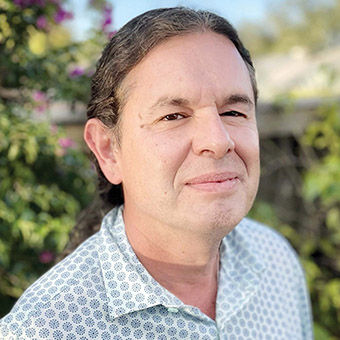
Many of the discussions at last week’s Caribbean Travel Marketplace involved visitor numbers’ return to near where they were prepandemic. But another topic regularly reared its head: the high cost of interisland flight connectivity. It’s something that doesn’t play well with a recent push by some of the region’s leaders to focus more on promoting multidestination tourism.
Taxes, fees and charges can account to as much as 50% of a ticket’s price, depending on the destination and route, according to Trevor Sadler, CEO of regional air carrier InterCaribbean Airways. That percentage is about double of other global markets, said Peter Cerda, regional vice president for IATA, at a Caribbean Tourism Organization conference last September.
Sadler cited an example of excessive charges where the airline, in a contest, gave a free flight ticket that could be used to travel from Georgetown, Barbados, to Nassau that turned out to be anything but free: The winner was on the hook for nearly $400 in fees, including taxes and other charges.
“When the tax starts to look like the airfare, you feel like you’re paying twice,” Sadler said. “When you look at my airfare piece, it may be half of what you’re paying us. The other half goes to the governments on either end, and sometimes governments in the middle because we fly over this airspace and this airspace, and everyone has their hand out to take some money from you.”
• Related: InterCaribbean is expanding interisland service
Another fee that impacts ticket prices is air-traffic control fees, which each island charges the airline when it crosses through its airspace. Then there can be terminal fees that could be higher in destinations undergoing or recently receiving airport improvements. Or fees that, in the case of Barbados, go toward destination marketing. Some destinations have VAT added to a ticket sale. Then the carrier pays 5% to 6% for costs including credit card fees and tax collection. And then there are landing fees.
“[Taxes] are the biggest impediment for growth, and while everyone wants to talk about it, you’d have to look long and hard to find anyone who wants to do anything about it,” Sadler said. “How can you justify $10 worth of air traffic control fees for one seat? If I didn’t sell the 30 seats, maybe it’s $15 per person, which is outrageous.”
The fees and charges are on top of a 45% airfare increase in the Caribbean from 2019, according to ForwardKeys.
Sadler said InterCaribbean attempts to keep prices steady year round, with no peaks for holidays or high season. But, there’s only so much price relief they can offer.
“It’s more painful for us than the customer, because we have to calculate how we pass on the costs,” Sadler said. “We can’t just absorb every fee, but that’s the reality we face.”
While many, including Sadler, the CHTA and the CTO, encourage multi-island travel, there remains a lot of work between the island governments for it to become a reality, and much of it involves sacrificing a few extra dollars from fees and taxes in exchange for more visitors.
“To make the concept of multi-island really hunt, everyone has to ask a pragmatic question: Do we need to tax everyone on the airport journey? Let this be your piece and give [travelers] a break. Most of [the money] is coming back, if not more,” in the dollars those tourists will spend while on the ground, he said.
Source: Read Full Article










